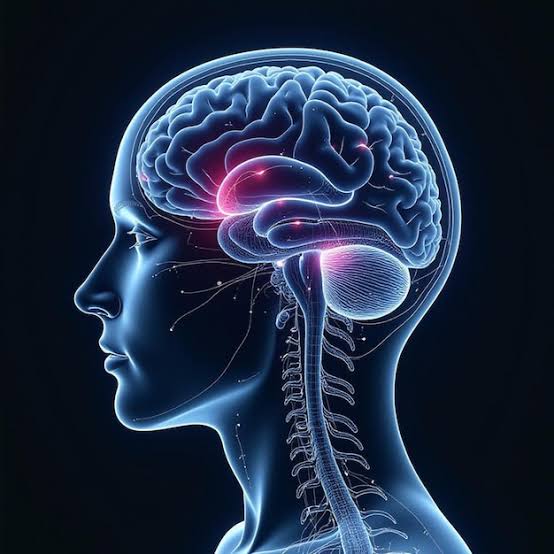Most of us know the bittersweet frustration of forgetting—a childhood friend’s face, a song that once meant the world, or even a story we swore we’d remember forever. Memory, that delicate thread connecting us to our past, seems to fray with time. Psychologists have long documented how we lose details rapidly in the first days or weeks after an experience, only to watch the decline slow down over months and years. This pattern of forgetting—fast at first, then leveling off—has been a cornerstone of memory science for over a century.
But what if those memories we believe are buried forever are not truly lost? What if the mind holds onto them, locked behind a door we’ve forgotten how to open? A new study by German researchers, published in Proceedings of the National Academy of Sciences, offers tantalizing evidence that this may be the case. Through a process known as “mental time travel,” scientists have shown that forgotten memories can be partially restored, behaving as if they were freshly made once again.
Rewinding the Mind
The concept of mental time travel sounds like science fiction but is, in essence, a deeply human ability. It’s the mental act of transporting ourselves back to the moment a memory was formed—recalling the sounds, smells, emotions, and environment surrounding that original experience. Think of revisiting a childhood home: the creak of the stairs, the smell of your grandmother’s cooking, the texture of a worn carpet beneath your feet. Suddenly, forgotten moments resurface in vivid color.
In their study, the research team sought to understand whether intentionally guiding people into this mental time travel could actually change how memories are forgotten. Specifically, they wondered if reinstating the context of a memory could reset its “forgetting clock,” making it more retrievable and more durable over time.
Testing Memory’s Resurrection
To explore this question, the scientists recruited over 1,200 volunteers to participate in two experiments. In one, participants memorized a list of words; in the other, they read and recalled a passage of text. The volunteers were split into groups: some simply tried to remember the information normally, while others were trained to mentally travel back to the moment they first learned it—reconstructing their thoughts, emotions, and surroundings during the initial experience.
Participants practiced this at varying time intervals—four hours, twenty-four hours, and a full week after the material was first encoded. The researchers hypothesized something remarkable: that these mental journeys would not only improve recall temporarily but actually reset the memory’s natural decline, making it behave like it had just been created.
A Sisyphus-Like Revival
The results were striking. For those who reinstated context through mental time travel, the rate of forgetting after these exercises mirrored the original trajectory of forgetting right after the memory was formed. In other words, the memory was rejuvenated. It was as if someone rolled back the clock, placing that memory at the foot of the hill once more, fresh and malleable.
The researchers liken this process to the myth of Sisyphus, condemned to eternally push a boulder uphill only for it to tumble back down. Similarly, memories revived through mental time travel regain their youthful strength—only to begin the natural process of decline again, just as they did when first formed.
This effect was most potent when memories were revisited sooner rather than later. Memories reactivated within hours or a day of their creation were far easier to rejuvenate than those left dormant for a week. Over longer delays, the ability to resurrect forgotten details diminished, suggesting that timing is crucial when attempting to rescue a fading memory.
Beyond Temporary Boosts
One of the most fascinating insights from this research is that this rejuvenation effect was not just a fleeting improvement in recall. If the mental time travel were merely a transient trick—like a cue briefly jogging your memory—the boosted retrievability would have quickly vanished, and the memory would return to its pre-reinstatement decline. Instead, the study revealed a genuine reset. Once revived, the memory’s future forgetting pattern followed the same curve as a freshly made memory.
This discovery challenges long-held beliefs that once a memory fades, it can never regain its original strength. It suggests that our brains hold onto far more than we realize, and that with the right mental tools, we might access forgotten moments with surprising fidelity.
The Promise and the Unknowns
While these experiments involved relatively simple memories—word lists and passages of text—the implications for real-life experiences are profound. Personal memories are richer, layered with sensory detail and emotion. Scientists suspect that these richer contexts may offer even greater potential for rejuvenation than the controlled laboratory settings of this study.
Imagine therapies designed to help trauma survivors safely revisit suppressed experiences, allowing them to process and integrate memories long thought inaccessible. Consider helping dementia patients or those with amnesia reawaken lost moments of connection with loved ones. Mental time travel may one day become a key technique for memory rehabilitation.
However, many questions remain. Can memories decades old be restored with the same vigor? Does mental time travel alter the memory itself, subtly reshaping its content? Could this technique one day help preserve memories in healthy individuals, slowing the natural erosion of time?
Rediscovering the Past Within
Human memory has always been mysterious—capable of brilliance, yet maddeningly elusive. We think of forgotten moments as scattered ashes on the wind, gone forever. This new research suggests they may be embers instead, still glowing beneath the surface, waiting for the right spark to reignite them.
Mental time travel does not promise perfect recall. It does not undo the natural forces of forgetting. But it offers something perhaps more powerful: the possibility that the stories we thought were lost still live within us, bound not by time but by context, waiting for us to step back into the moments when they were born.
In the end, memory is not just a record of who we were—it is a living bridge to who we are and who we might become. And now, we know that bridge may be stronger, and more enduring, than we ever imagined.
Reference: Karl-Heinz T. Bäuml et al, Reinstating memories’ temporal context at encoding causes Sisyphus-like memory rejuvenation, Proceedings of the National Academy of Sciences (2025). DOI: 10.1073/pnas.2505120122






